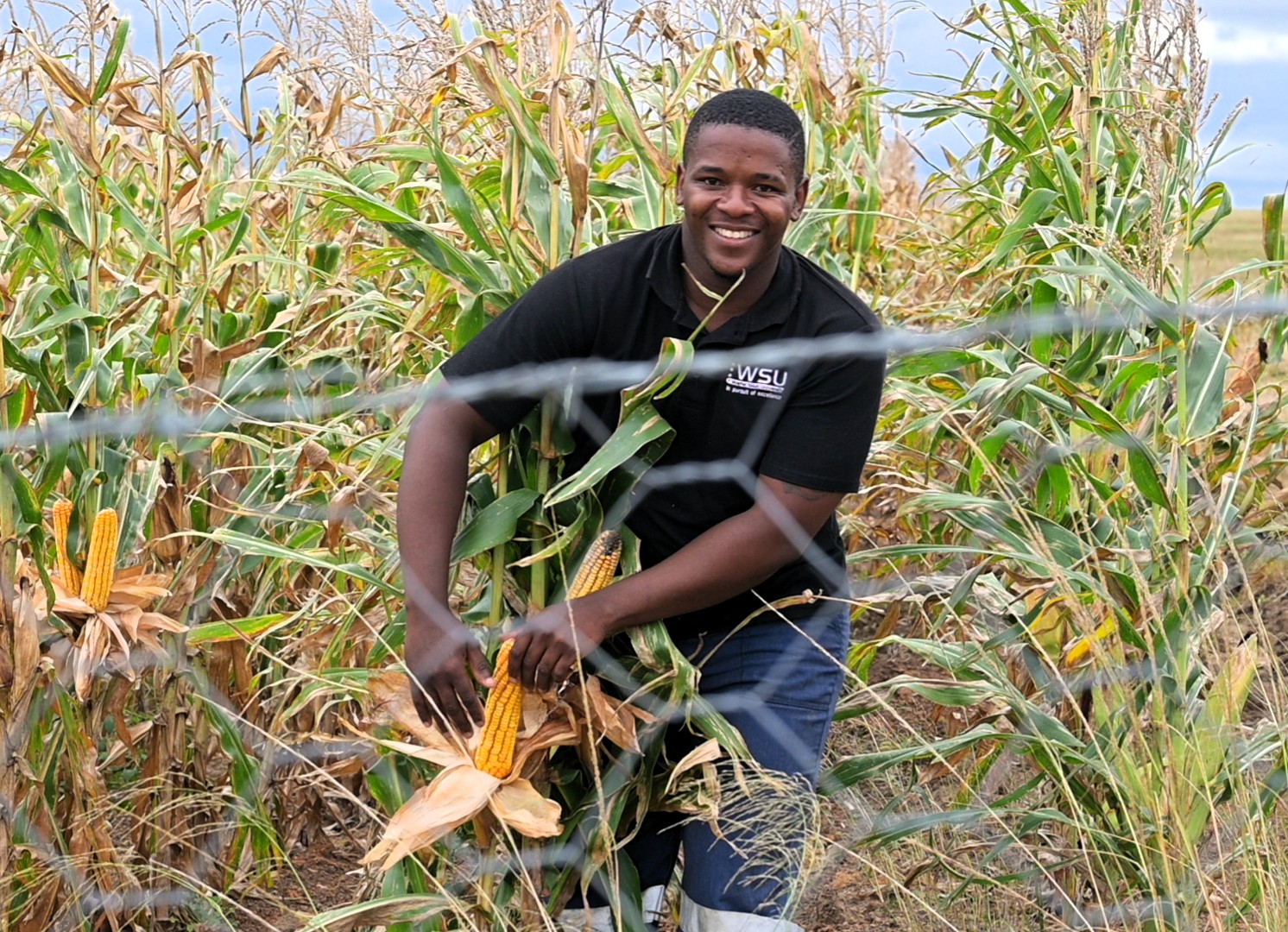WSU STUDENT CREATES JOBS THROUGH THRIVING FARMING BUSINESS IN QOMBE
In the heart of Qombe, Dutywa, where unemployment and poverty weigh heavily on many households, a young entrepreneur is sowing the seeds of change, both literally and figuratively.
Ncedo Ntsabo, a Walter Sisulu University (WSU) Education student, has built Qombe Maize & Projects, a thriving commercial farming business that employs 36 seasonal workers.
His journey from selling maize bags to becoming a job creator showcases resilience and grassroots economic change.
Growing up, Ntsabo and his family worked tirelessly on their farm. He started small, selling maize bags to local farmers before expanding to grow and sell his crops at affordable prices.
His breakthrough came when he won R120,000 in funding from the Entrepreneurship Development in Higher Education (EDHE) intervarsity, an annual competition that identifies and showcases top student entrepreneurs from South Africa’s public universities.
He then used the funds to fence his maize farm and expanded into livestock farming. His business now breeds and sells goats and sheep while also providing veterinary support to local farmers.
Ntsabo is not only strengthening food security but also empowering small-scale farmers to sustain their livelihoods.
“Qombe Maize & Projects is more than just a business to me; it is a movement. It is my bold declaration that farming is not just about tilling the land, but about empowering communities, creating employment, and building a sustainable future,” Ntsabo said.
He added that agriculture was his passion and that the agriculture business was his life.
“Through this enterprise, I hope to inspire young entrepreneurs, farmers, and rural communities to see agriculture not just as a necessity, but as an opportunity, a sector filled with innovation, wealth creation, and food security solutions,” he added.
As he officially launches his commercial farming business alongside WSU representatives, Rhodes University officials, the Director of Entrepreneurship Development in Higher Education (EDHE), government representatives, traditional leaders, and local farmers, he embodies the potential of young South Africans to create opportunities where none exist.
“My greatest hope for Qombe Maize & Projects is that it becomes a beacon of agricultural transformation, a model of what is possible when determination meets opportunity,” Ntsabo said.
“I envision it growing into a fully-fledged enterprise that not only contributes to food production, but also integrates new technologies, organic farming methods, and agro-processing for a more sustainable and profitable future.”
Ntsabo’s initiative has already begun making a tangible impact. One of his employees, Ncediswa Ben, expressed her gratitude for the opportunity to earn a living.
“The young man is a blessing to us. We don’t only work for him; he always encourages us to plant our crops in our gardens. He followed his name.”
She added that the enterprise was also a blessing to the village, as residents no longer needed to travel an hour to town to buy vegetables.
Ntsabo’s father, Hamilton, shared the same sentiments, expressing his pride and aspirations for the business.
“We hope to see the business grow beyond expectations. I am very happy, and words are just not enough to describe the feeling,” he said.
Messages of support poured in from various speakers at the event, urging Ntsabo to push beyond limits and continue expanding his enterprise.
EDHE Director Dr Edwell Gumbo emphasised the importance of staying focused. “Ncedo was blessed to win against 26 universities. He was focused and clear about how he would spend the money, and it was not just about him—it was about the Qombe community.”
He commended Ntsabo’s initiative in job creation and urged all present to support him.
He also encouraged students to obtain their qualifications while acquiring skills that would sustain them if formal employment was not immediately available.
WSU Marketing & Communication Deputy Director Mathabo Hendricks highlighted the university’s commitment to fostering entrepreneurship.
“WSU has various initiatives to support student entrepreneurs through community engagement, demonstrating our dedication to developing student-led businesses,” she said.
She also encouraged parents to support their children’s ambitions, even if they don’t fully understand them.
Ntsabo expressed deep appreciation to all stakeholders present at the event, stating that their support and belief in his project affirmed the critical role agriculture plays in shaping the economy and improving livelihoods.
By: Yolanda Palezweni

